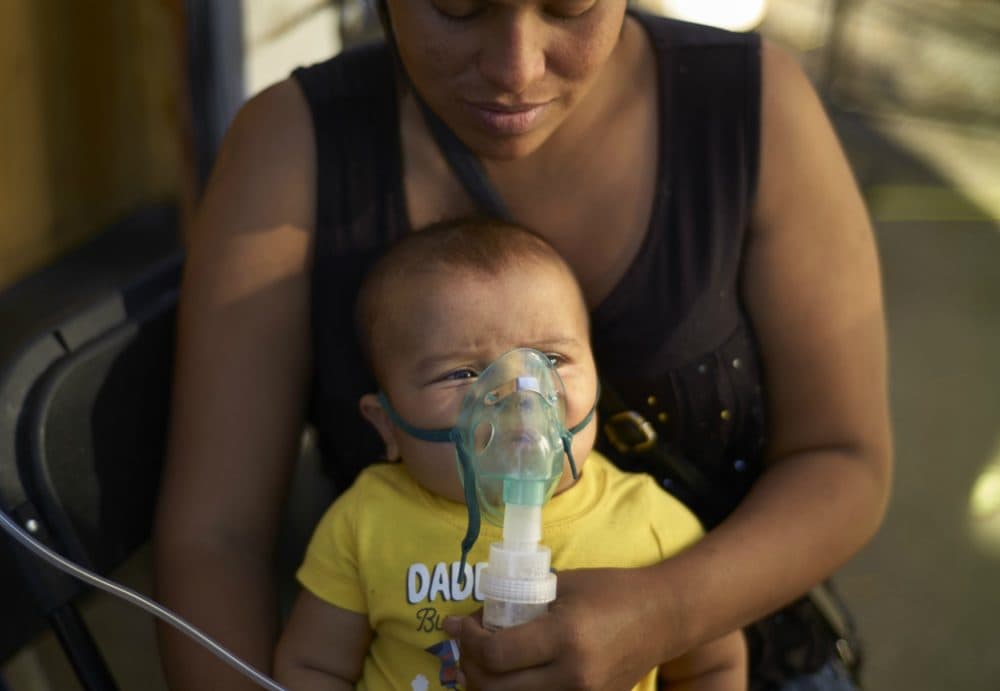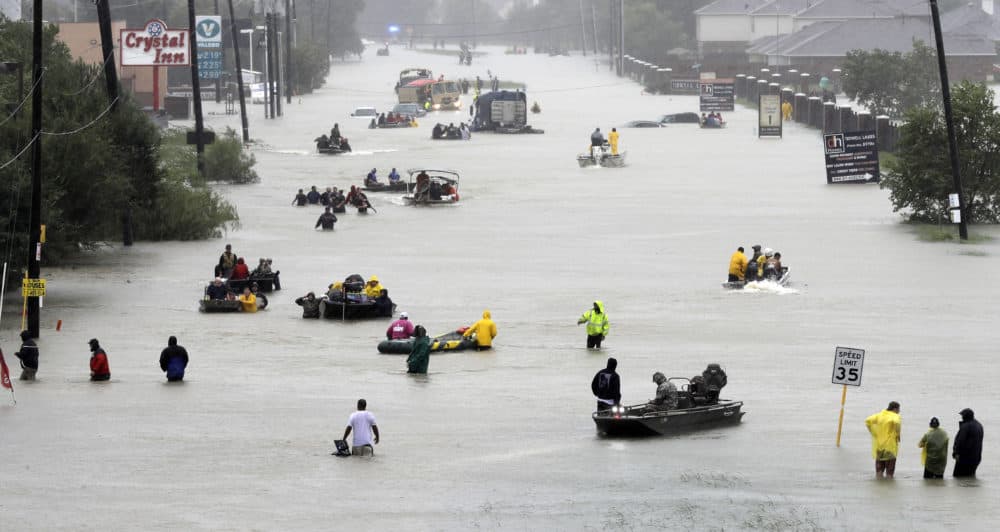Advertisement
Commentary
Think The Migration Crisis Is Bad? Climate Change Will Make It Far Worse

Things have been ugly at our southern border for some time, no doubt fueled by the racist rhetoric and paranoia of our president and his allies. The "migrant caravan" charade that played out before the midterms saw Trump send troops to the border and flirt with the use of lethal force. But on Sunday, Trump's grotesque rhetoric escalated into violence, as U.S. Border Patrol agents fired tear gas into a crowd of Central American civilians, including children and infants.
Meanwhile, on the other side of the fence, the reaction of the American public to the violence has been similar to the way many of us reacted when the federal government began separating kids from their parents. People who oppose Trump and the Republican Party are outraged, depressed and shocked by what Americans are doing to their fellow human beings.
The “outraged” and “depressed” parts are sentiments I can certainly relate to. But anyone who claims to be “shocked” by the violence at the border ought to consider one of the driving factors that’s already driving civilian migration around the world: climate change.

Thanks to the buildup of carbon dioxide in the atmosphere, our ecosystem is deteriorating at a rate that exceeds most scientific forecasts. In America, the power of today’s super storms and wildfires hits our most vulnerable and underprivileged citizens the hardest, a dynamic that plays out on a global scale.
While residents of Paradise, California (now a smoldering ruin) were incinerated in their cars while trying to escape the inferno, the wealthier enclave where Kanye West and Kim Kardashian reside was saved by private for-hire firefighters. The same dynamic played out in New Orleans back in 2005. Residents of the Lower Ninth Ward were left to drown in the floodwaters of Hurricane Katrina, while those who could afford to flee retreated into the suburbs until the waters receded.
Poor communities in Africa, Asia, the Middle East and Latin America are suffering from drought, heat waves, flooding and, most frightening of all, crop failure and the erasure of food supplies. A 2018 report by the World Bank argues that if we fail to dramatically reduce greenhouse gas emissions, 143 million people could become “climate migrants” after the year 2050.
... if we fail to dramatically reduce greenhouse gas emissions, 143 million people could become “climate migrants” after the year 2050.
Of course, there are other forces behind today’s migration crises, for which the U.S. also shares responsibility. We have a bloody history of supporting far right (read: pro-capitalism) juntas like the ones that left piles of bodies in Chile, El Salvador and the Philippines. This sordid tradition has continued under the leadership of Republicans and Democrats. In 2009, President Obama and Secretary of State Hillary Clinton looked the other way as the Honduran military executed a coup against President Manuel Zelaya, which led to the murders of liberal activists including Berta Cáceres. Again, this is worth remembering in light of today’s southern border violence.
Foreign policy decisions can be reversed relatively quickly. Curbing climate change requires a long-term international strategy. Our short window to concoct a global strategy is already closing, and America hasn’t even been able to come up with a domestic plan for tackling the issue.
This is especially strange because there’s a lot of support across America for policies that would alleviate the destruction of climate change. Furthermore, the emergence of young politicians on the left, including Alexandria Ocasio-Cortez and Ilhan Omar, and the growth of activist organizations including 350 and the Sunrise Movement, has brought climate change into focus one of the defining issues of our time. (If not, the defining issue.) The recent wildfires and ongoing air pollution in California have only amplified the chatter, most of which is being led by young people — from the activists sitting-in at Nancy Pelosi's office, to the kids who are currently suing the U.S. government for the right to live in a stable climate.
But climate change isn’t getting as much attention from the White House (whose inhabitant, again, confirmed his position on climate change: “I don’t believe it”), Congress (where the majority of Republicans are committed climate change deniers) and even the pool of rumored 2020 contenders for the Democratic Party's presidential nominee.
Instead, Democrats and Republicans rhapsodize about creating jobs, rebuilding roads and bridges, and finding a solution to the migration crisis.
This all sounds nice, but talking about the economy, infrastructure and human rights without acknowledging how climate change impacts each of those bread and butter issues isn’t just a serious oversight — it’s an abdication of responsibility to engage with the greatest challenges we face today.
[Without action] the recent violence at our southern border will be a sneak preview of far worse human catastrophes ...
I get it. Climate change is big challenge: We’ve never dealt with anything quite like it. I can even understand politicians steering clear of the issue, because they have no idea how to meaningfully approach such a seismic and potentially apocalyptic problem.
But the hour for that kind of gormless procrastination has passed. According to the U.N.’s Intergovernmental Panel on Climate Change, we only have a handful of years to act before it will be too late to avoid the worst effects of climate change. And if we don’t commit to doing this, the recent violence at our southern border will be a sneak preview of far worse human catastrophes to come.
Consider that — in spite of all its refutations of science — the Trump administration understands this, and views tear-gassing children as essentially a way to “warm up” Americans for the caliber of force that could be deployed when things become even worse. When the swells of desperate refugees searching for asylum get even bigger.
If we’re no longer talking about what happened at the southern border a week from now — and if the elected leadership of both parties continue to sideline climate change as a priority issue — then we’re headed for an extremely dark chapter of U.S. history.
And no one can pretend to be shocked when we get there.
